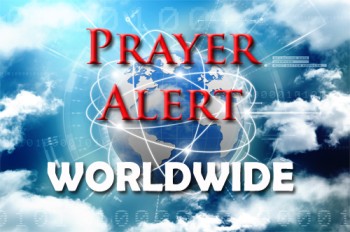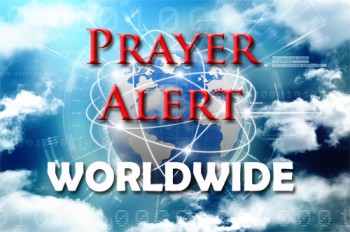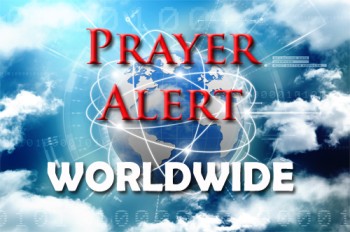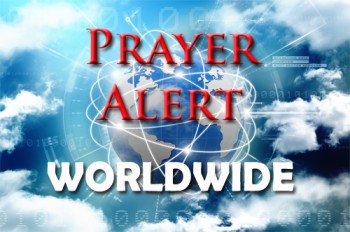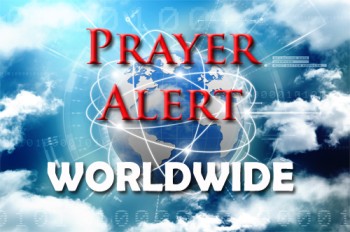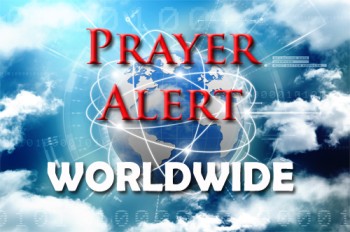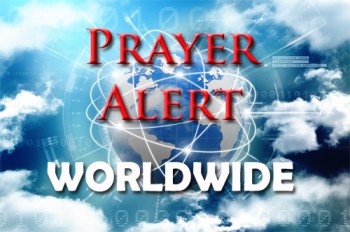Displaying items by tag: Nepal
Nepal: the challenges facing new PM
New prime minister Sushila Karki, a former chief justice known for her uncompromising stance against corruption, faces an immense challenge just weeks after taking office. Chosen after huge protests which toppled her predecessor KP Sharma Oli, she has six months to deliver elections and satisfy demands from Nepal’s energised Gen Z movement. Protesters are urging her to arrest senior leaders accused of graft, purge politically connected bureaucrats, and investigate the 74 protest-related deaths. Their support remains conditional, with leaders such as Sudan Gurung warning they will oust her if progress stalls. Karki has pledged an anti-corruption committee and a panel to examine the violence. Yet entrenched party power - especially Oli’s influence as head of the Communist Party - poses obstacles. With youth unemployment above 20% and decades of political instability, Nepal stands at a pivotal moment reminiscent of the 2008 Maoist uprising. Karki must balance swift action and careful diplomacy to prevent renewed turmoil, while proving that democratic reform is possible.
Nepal: violent protests against corruption and ban on social media
Nepal has been rocked by its most intense unrest in decades, with corruption and nepotism at the heart of nationwide protests. The turmoil escalated dramatically after the government’s controversial ban on social media platforms triggered widespread anger, amplified by resentment over politicians’ wealth and privileges. Though Gen Z activists initially led peaceful demonstrations, they turned violent, leaving at least 29 people dead and parliament, government buildings, and private homes torched. The protesters insist that infiltrators hijacked their movement, a claim supported by the army. While regretting the violence, some are cautiously optimistic that the movement might spark reforms. The army has deployed across Kathmandu, enforcing curfews, manning checkpoints, and inviting protest leaders to talks, while some young people began cleaning debris to show their hope for change. Whether the movement will lead to accountability and new leadership, or simply further instability, remains to be seen.
Pakistan: devastation and deaths caused by monsoon floods
The village of Bishnoi in northern Pakistan has been devastated by a sudden flash flood, leaving entire homes buried beneath rocks and debris. On 15 August, torrential rains triggered a surge of water that swept through the village, destroying nearly every house. Locals described the scene as catastrophic, with families trapped under stones and crops flattened across the valley. Rescue operations continue with limited equipment, as survivors search desperately for missing loved ones. The area has suffered over 300 deaths, making it the hardest-hit region in Pakistan’s monsoon season, which has claimed more than 500 lives nationwide; there have also been many deaths in India and Nepal. Climate experts warn that melting glaciers, accelerated by global warming, are worsening the impact of heavy rains and landslides. Amid tragedy, there were moments of heroism, such as a school principal in the Swat valley who ordered the evacuation of 900 children only minutes before floods destroyed the building. In Bishnoi, families mourn as relief and recovery efforts continue.
Nepal: motherhood programme at risk due to lack of funds
The Safe Motherhood Programme, which has drastically reduced maternal and neonatal mortality in Nepal, is at risk due to severe funding shortages. Rs 380 million (£2 million) is urgently needed to reimburse hospitals and continue essential services. An additional Rs 600 million (£3.3 million) will be needed this fiscal year to sustain operations. Launched two decades ago, the programme offers free delivery services, antenatal checkup incentives, and transportation allowances. It helped raise institutional deliveries from 18% to 80% and cut the maternal mortality rate from 539 per 100,000 live births in 1996 to 239 by 2016. However, nearly 130 maternal deaths have already occurred in the current fiscal year. The WHO has warned that progress toward the goal of reducing maternal mortality to 75 per 100,000 by 2030 could stall without immediate investment. The report stresses that broader efforts, like ensuring girls’ education, improving family planning, and tackling health inequalities, are crucial to safeguarding maternal and newborn lives.
Encounter with Jesus after accident transformed man's life
Samuel Brownback, co-chair of the International Religious Freedom Summit, shared the testimony of a man in Nepal who encountered Jesus after a tragic accident. The man, a Hindu at the time, survived a devastating car crash that claimed his friend’s life. As he sought help, he said Jesus appeared to him, saying, 'I saved you, now you follow me’. This moment changed his life, leading him to become a devoted follower of Christ, boldly sharing his testimony in Nepal. Brownback highlighted similar life-changing encounters around the world and also recounted the painful reality of persecution, including a Ukrainian evangelical pastor who was murdered in front of his two sons. He believes that God is moving powerfully in troubled times.
Nepal: activists trying to halt mass slaughter of animals
Animal rights activists are urging the Nepali government to halt the mass slaughter of animals during the Gadhimai festival, a tradition held every five years in a village near the Nepal-India border. Despite a 2016 supreme court order to phase out animal sacrifices, thousands of buffaloes, goats, and pigeons were reportedly killed this year. Participants believe that sacrificing animals pleases the goddess Gadhimai, bringing them good fortune and fulfilling wishes. Efforts by organisations like the Humane Society have led to a reduction in the number of animals sacrificed, but activists argue that more needs to be done. Local officials claim that measures are being taken to limit the practice, and some villagers have shown openness to alternatives, such as monetary donations instead of animal offerings. However, many community members resist change, viewing the sacrifices as an integral part of their 200-year-old cultural tradition. Activists continue to work on the ground, focusing on education and awareness to shift attitudes towards ending the practice.
Nepal: latest disaster exposes government’s lack of preparedness
A devastating monsoon downpour in Nepal has led to severe flooding and mudslides, claiming over 200 lives, injuring 127, and leaving 56 missing. Rescue operations successfully saved over four thousand stranded people. However, despite warnings of more heavy rains, the prime minister admitted that he had not anticipated such flooding in Kathmandu. One critic has said that the government ‘miserably failed to not only protect people’s lives but also, according to its admission, to coordinate the resources and manpower to save them’. Even the mayor of Kathmandu struggled to mobilise resources effectively. Critics have called for a more robust disaster management strategy by revitalising the national disaster management authority, allocating resources, and involving experts. Disaster prevention and management must be a top priority, transcending political lines, to protect the nation from future crises.
South Asia: massive floods cause widespread devastation
Massive floods in India, Nepal, and Bangladesh have killed dozens and affected millions. Heavy rains have caused many major rivers to overflow, leading to large-scale devastation. In Nepal, floods have killed more than forty people and damaged key infrastructure. In Assam, India, 66 people have died, and 2.4 million are affected. Bangladesh has reported eight deaths: the overflowing Brahmaputra has inundated a quarter of the districts in the country. Floods and landslides are not uncommon during South Asia's monsoon season, when it receives up to 90% of its annual rainfall; but experts say the issue has worsened in recent years due to climate change. Large-scale rescue operations are under way, with authorities directing thousands to shelters while sending food and supplies to those who are stranded.
Nepal: repurposing discarded rubbish
A group led by Sunita Chaudhary are repurposing discarded mountain climbing ropes into handcrafted items like jewellery boxes and table mats. These ropes, once vital for climbers but later discarded, are now collected as part of an initiative to clean up mountain waste. Chaudhary, a skilled craftswoman from the Tharu community, transforms these materials using traditional techniques. The Himalayas accumulate vast amounts of waste from mountaineering activities, estimated at nearly 140,000 tons on Mount Everest alone. Government-led campaigns dispose of biodegradable waste securely and recycle non-biodegradable materials. However, recycling mountain climbing ropes proved challenging until Shilshila Acharya, an advocate for sustainable waste management, connected with a local waste-processing business and Chaudhary's team. This initiative aims to integrate local expertise, mountain waste, and the local economy, ensuring that waste collected from mountains like Everest avoids landfills in the future.
Nepal: growing trend of attacking churches
Attacks on two churches in Nepal over the weekend were just the latest in a string of recent violence against Christians. The churches are in the province of Lumbini, which borders India. Photos and videos reviewed by International Christian Concern (ICC) showed broken windows and other signs of violence around the properties, including damage to fences and a broken motorbike. Another photo shared on social media showed two men, identified as pastors, being assaulted on the street. Locals smeared the pastors’ faces with a sticky black substance in a cultural sign of hatred and disrespect. The Lumbini attacks are the sixth and seventh such attacks against churches in Nepal in two weeks. ‘It’s spreading like wildfire’, a Nepalese civil society leader has told ICC. ‘Perpetrators, seeing little to no response from the authorities in recent weeks, are encouraged to act more.’
